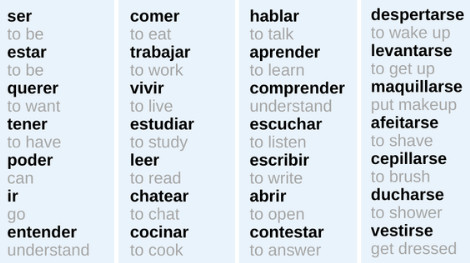Here I show ten sentences in Spanish that use both the preterite and imperfect verb tenses. By studying these sentences and their explanations, you can gain a better understanding of the different uses of these tenses, which are important for communicating effectively in Spanish. The preterite tense is used to describe specific, completed actions in the past, while the imperfect tense describes habitual, ongoing actions in the past.
- Cuando era niño jugaba con mis amigos en el parque todos los días.
- Ayer fui al cine y vi una película muy buena.
- Cuando llegué a la fiesta ya estaban todos bailando.
- Cada verano, mi familia y yo íbamos a la playa y nos quedábamos por una semana.
- Hace dos días compré un libro que había estado buscando por mucho tiempo.
- Cuando era joven vivía en una casa muy pequeña con mi familia.
- Anoche cené en un restaurante nuevo que acaban de abrir en el centro.
- Cuando iba a la universidad estudiaba mucho para mis exámenes finales.
- El año pasado viajé a Europa y visité muchos países diferentes.
- Cuando era adolescente tocaba la guitarra en una banda con mis amigos de la escuela.
Here are the explanations for why the preterite or imperfect tense is used in each sentence:
- Cuando era niño jugaba con mis amigos en el parque todos los días. Imperfect tense: “jugaba” Explanation: The imperfect is used to describe past habitual or continuous actions. In this sentence, “jugaba” is an habitual action that the speaker did regularly when he was a child.
- Ayer fui al cine y vi una película muy buena. Preterite tense: “fui” and “vi” Explanation: The preterite is used to describe completed past actions. In this sentence, “fui” and “vi” both refer to specific events that happened and were completed in the past. Also, ayer is very often a clue that we need the preterite.
- Cuando llegué a la fiesta ya estaban todos bailando. Preterite tense: “llegué” Imperfect (progresive) tense: “estaban bailando” Explanation: The preterite is used for completed past actions. In this sentence, “llegué” is a completed action. The imperfect (imperfect progressive in this case) is used to describe an ongoing action in the past, “estaban bailando,” which was happening when the speaker arrived at the party.
- Cada verano mi familia y yo íbamos a la playa y nos quedábamos por una semana. Imperfect tense: “íbamos” and “quedábamos” Explanation: The imperfect is used to describe past habitual or continuous actions. In this sentence, “íbamos” and “quedábamos” both describe past habitual actions that the speaker did every summer. Also, cada is a clue that something repeates itself, which calls for the imperfect.
- Hace dos días compré un libro que había estado buscando por mucho tiempo. Preterite tense: “compré” Explanation: The preterite is used to describe completed past actions. In this sentence, “compré” refers to a specific event that happened and was completed in the past.
- Cuando era joven vivía en una casa muy pequeña con mi familia. Imperfect tense: “vivía” Explanation: The imperfect is used to describe past habitual or continuous actions. In this sentence, “vivía” is an habitual action that the speaker did regularly when he was young.
- Anoche cené en un restaurante nuevo que acaban de abrir en el centro. Preterite tense: “cené” Explanation: The preterite is used to describe completed past actions. In this sentence, “cené” refers to a specific event that happened and was completed in the past. Anoche and ayer are clues that we might need the preterite.
- Cuando iba a la universidad estudiaba mucho para mis exámenes finales. Imperfect tense: “iba” and “estudiaba” Explanation: The imperfect is used to describe past habitual or continuous actions. In this sentence, “iba” and “estudiaba” both describe habitual actions that the speaker did when he was in college.
- El año pasado viajé a Europa y visité muchos países diferentes. Preterite tense: “viajé” and “visité” Explanation: The preterite is used to describe completed past actions. In this sentence, “viajé” and “visité” both refer to specific events that happened and were completed in the past.
- Cuando era adolescente tocaba la guitarra en una banda con mis amigos de la escuela. Imperfect tense: “era” and “tocaba” Explanation: The imperfect is used to describe past habitual or continuous actions. In this sentence.
There are many more rules for preterite and imperfect, but these are the ones required for these specific examples.
In case you need to:
- When I was a child, I used to play with my friends in the park every day.
- Yesterday, I went to the cinema and saw a very good movie.
- When I arrived at the party, everyone was already dancing.
- Every summer, my family and I used to go to the beach and stay for a week.
- Two days ago, I bought a book that I had been searching for a long time.
- When I was young, I lived in a very small house with my family.
- Last night, I had dinner at a new restaurant that just opened in the downtown area.
- When I was in college, I used to study a lot for my final exams.
- Last year, I traveled to Europe and visited many different countries.
- When I was a teenager, I used to play guitar in a band with my friends from school.




